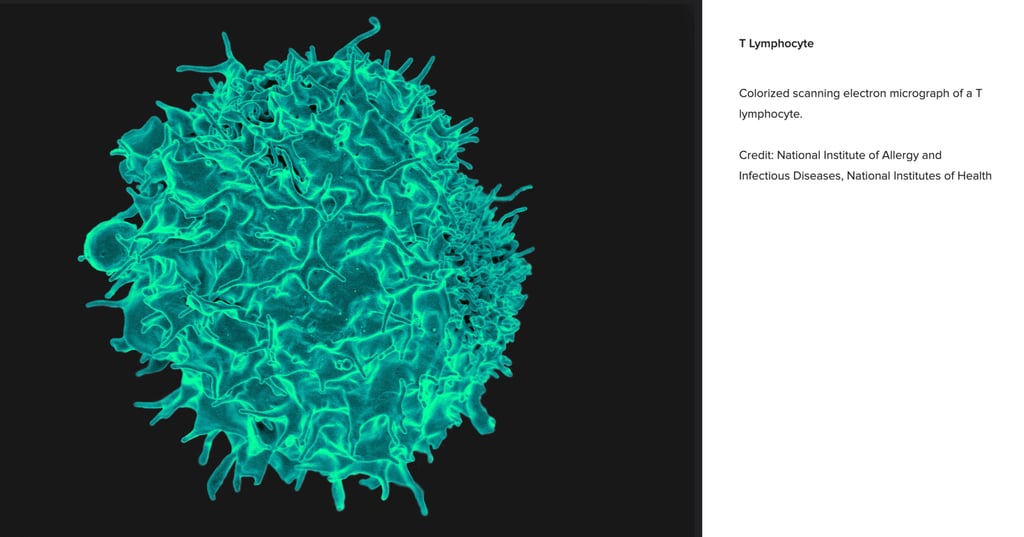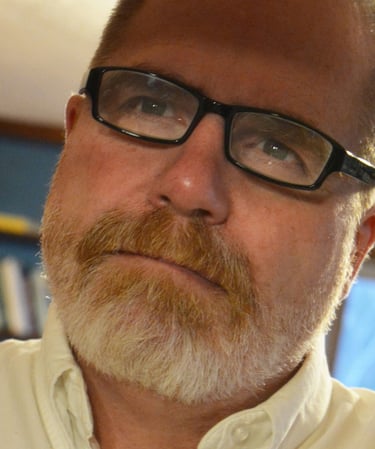

"I'm Roderick MacIver, and I founded Emerging Cures because I've been where you are. I'm a two-time cancer survivor who once faced a terminal diagnosis. I know what it's like to hear those words from your doctor and feel like time is running out. But I also know that increasingly the answer you need exists—you just have to find it. My background is in investigative due diligence for major corporations, where I learned how to dig deep, ask the right questions, and uncover information that others miss. When I was fighting for my own life, I brought that same tenacity to medical research. Now, I use those skills to help other patients navigate their journey and find hope in emerging science.
"I'm a digger for facts, and I'm in search of other diggers—medical researchers who go down deep into their disease area and notice things that others in their field overlook. There are the facts that are widely known and accepted, and then there are facts beneath the apparent surface reality that often determine outcomes. It is those facts—the facts beneath the surface—that are crucial to achieving our ultimate objective: recovery.
"I have the tenacity of a bloodhound on a scent when it comes to those deeper facts—the search for who really understands a particular disease and has clear evidence of a possible solution."
Roderick MacIver, a two-time cancer survivor, including a terminal diagnosis, possesses a unique and intimate understanding of the desperate search for answers and the tenacity required to find them.
For years I've been doing this work for free for friends and readers of my books and art journal who contacted me for help after hearing of my own experience. Often, I found they were unable to take advantage of the information I uncovered because doing so required an additional step—interviews of key physicians and scientists involved in leading-edge research—and I lacked the ability to devote the many hours per month required to do that for them. Consequently, I launched this paid service.
Background
My background spans fighting forest fires in the Canadian subarctic to real estate, investment analysis, and pre-offer due diligence for corporate acquirers. In that last role, I developed the skills—interview and other investigative techniques—to uncover crucial hidden information. I did that work for six years.
The key to interviewing experts, I've found, is insatiable curiosity.
My History With Cancer
I've been diagnosed with cancer twice: Stage 4a non-Hodgkin's lymphoma and prostate cancer with a Gleason score of 7 (3+4). The lymphoma, at the time—before the advent of Rituxan—was considered incurable. Stage 4a means the disease had migrated to my bone marrow. I had 52 tumors throughout my body, including one in my mesentery that measured 22 x 15 cm. I was told by my oncologist that of the thousands of people diagnosed every year with the form of lymphoma I had, there was only one documented case of long-term survival that he was aware of. Seven years ago, I was diagnosed with prostate cancer.
When addressing my two cancer diagnoses, I used the same research and interview techniques I had developed in acquisition due diligence. I found out who was doing groundbreaking research and asked them for interviews. Few responded, but those who did provided valuable information. Sometimes they would point me toward others they particularly respected who were engaged in innovative research. These interviews led me to enroll in three trials—one at the NIH in Bethesda, Maryland, and another at Dana-Farber, both for lymphoma (neither of which helped), and one at Brigham and Women's in Boston for prostate cancer that did help.
Ultimately, in the case of lymphoma, I found a drug in Germany developed by the chemist who headed the Red Cross there. It was originally developed to treat physicians who returned from Chernobyl with sublethal radiation exposure. Leukemia is a common side effect of sublethal radiation. That drug—WF10—prevented them from getting leukemia and had a dramatic, positive impact on my own health. It allowed me to survive until Rituxan became available. Before that, I had been enrolled in an experimental autologous bone marrow transplant program at Dana-Farber. I was removed from that program when my blood counts deteriorated as a result of chemotherapy. I was anemic and a borderline hemophiliac, and was told that as a result, I couldn't receive any more chemotherapy. I was out of options. The combination of Rituxan and WF10 saved my life, I now believe.
In the case of prostate cancer, I enrolled in a trial at Brigham and Women's Hospital in Boston. Once a month, they injected a genetically modified virus developed in Japan into my prostate. It created antibodies that fought the cancer. After three of these injections, an MRI indicated I was cancer-free. A biopsy several months later showed, however, that it had returned. I do believe that virus therapy prevented the disease from spreading to nearby tissue, as is common in patients with my Gleason score. Because it had not migrated, I was able to receive radioactive implants. That was several years ago. So far, there's no sign of recurrence.
The personal battles I faced ignited in me a profound commitment to ensure that others do not face similar fights alone.


Be in touch if you'd like to talk.
(843) 284-6850 (Office)
(843) 802-0183 (Mobile)
rod@emergingcures.org
17 Executive Park Road, Office 4B
Hilton Head Island, SC 29928
(Small office complex between the fire station and
Stellini's Restaurant)
